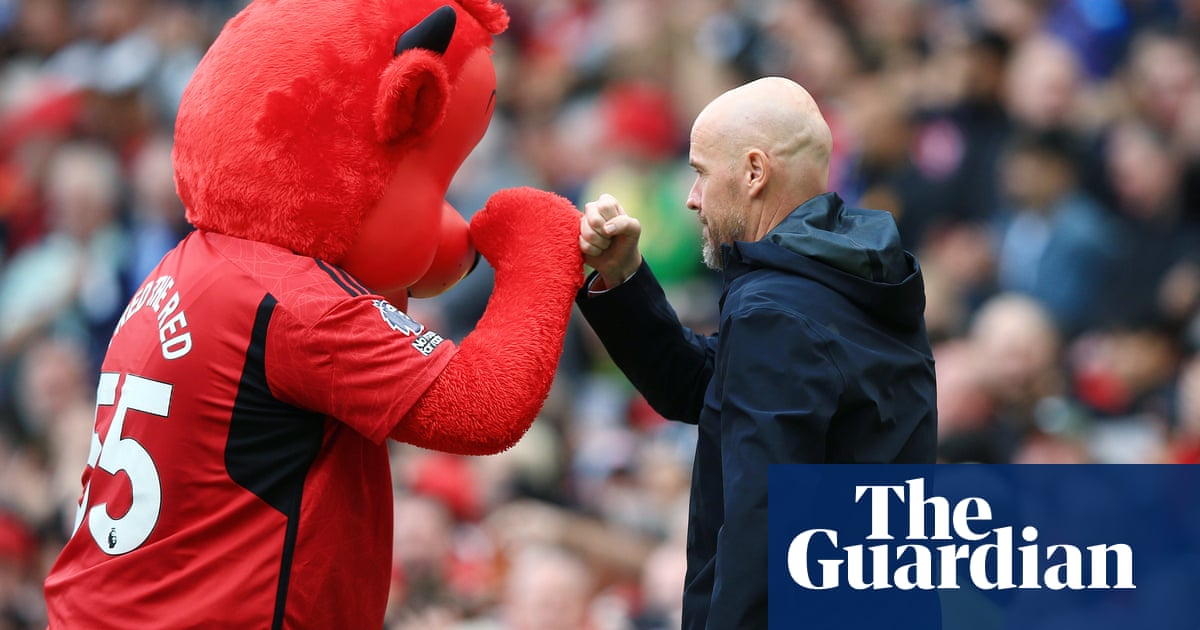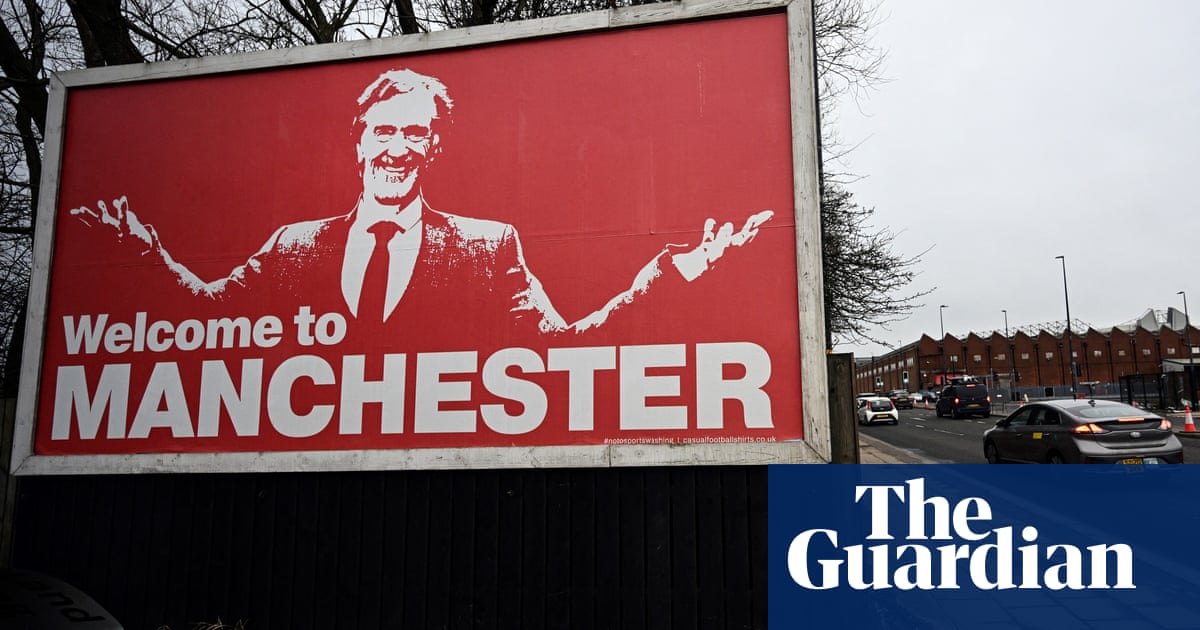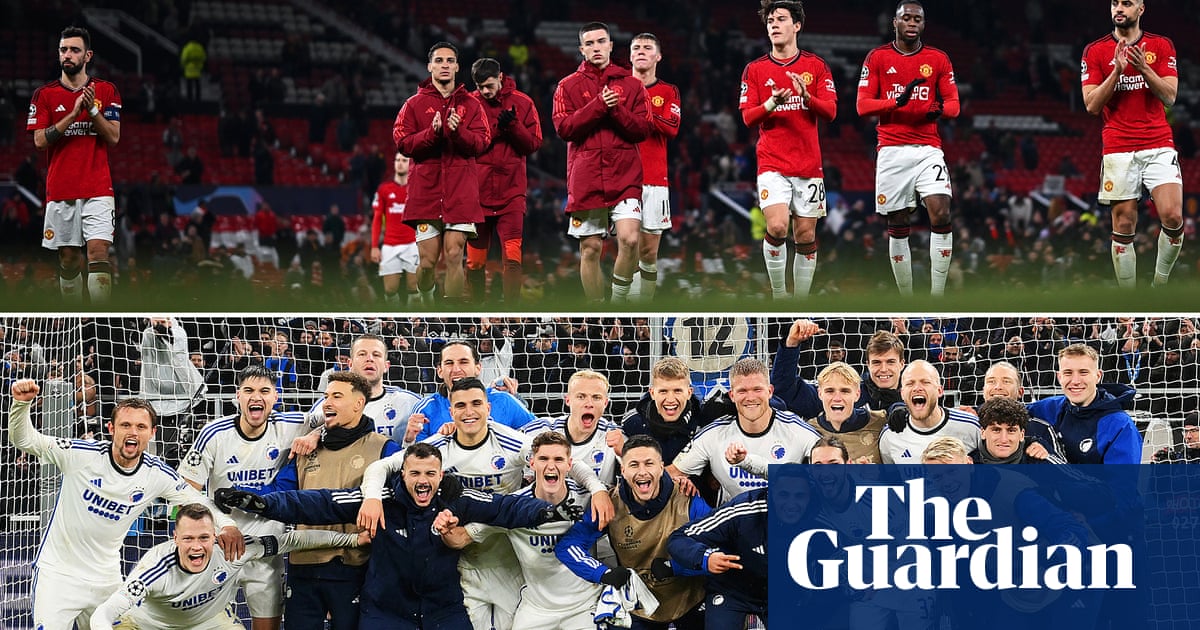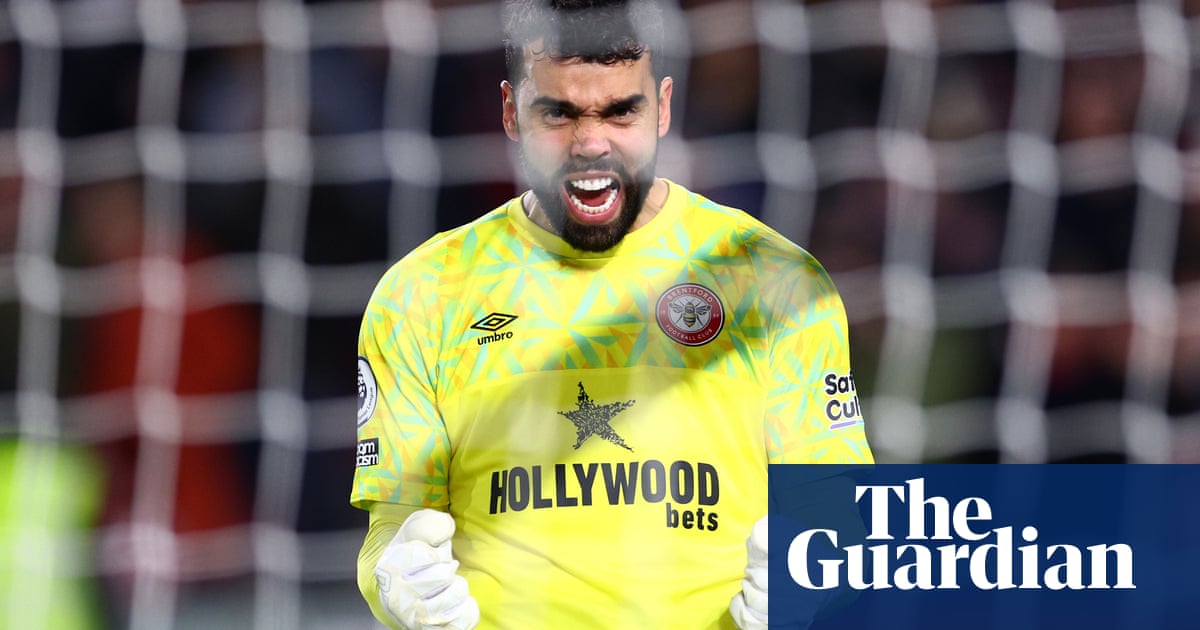
There was very little hype. No cheerleaders on the pitch, no fireworks, no whole new ball game as Sky sold it when they started broadcasting the Premier League. The first league match shown live on the BBC – Manchester United v Tottenham on Friday 16 December 1983, nearly a decade before the birth of the Premier League – was in many ways the complete opposite to what we experience now. The product was undersold and it very much exceeded expectations.
The BBC started its TV service in 1936 and it showed a specially arranged friendly between Arsenal and Arsenal Reserves at Highbury the following year. That broadcast only went out to a few homes in north London, but it was a start. The corporation soon moved into coverage of the FA Cup, international games and highlights shows, but it took nearly half a century before they broadcast a league match live.
The First Division game between Manchester United and Tottenham was an ideal beginning, not that everyone was excited. Clubs were already concerned about declining attendances and worried that fans would stay at home if more matches were screened live. With just nine games to be shown that season between ITV and the BBC, there seemed little chance of overkill, but the fact that just 33,616 turned up for the game – the lowest league gate of the season at Old Trafford – seemed to justify the stance of club chairmen.
There was very little in the way of build-up and analysis of the match. The coverage started just 10 minutes before the 7:15pm kick-off and it ended shortly after the final whistle. Jimmy Hill was busy on the night. He appeared as the main presenter, with Bobby Charlton as the expert beside him, before making a dash to fulfil his role as the co-commentator during the match.
John Motson was the main commentator on a night of drama, comedy, entertainment and goals galore. Introducing the game as a tussle between the “aristocrats from the south against the glamour team from the north,” Motson was at his excitable best during a match that did not disappoint. By the time Arthur Graham gave United the lead in the 13th minute, Bryan Robson had already hit the bar and Mark Falco had been denied a penalty.
Tottenham fans must have been screaming obscenities at their screens when the opening goal went in. There seemed little danger when Graham put in a cross with his left foot from the right flank. But when defender Gary Stevens and goalkeeper Ray Clemence left the ball for each other, their indecision proved costly.
Any viewers who switched on after the goal would have had little idea United were in front. “In case you’ve joined the match late, Manchester United leading by one goal to nil, a goal scored by Arthur Graham after 13 minutes,” Motson helpfully informed the viewers some 20 minutes into the match. Different times. Another problem was the lack of a permanent scoreboard on the screen. After 35 minutes we were shown the score, but there would often be a frustrating period of trying to guess who was winning a match you had joined late.
It is also interesting to note the role of the co-commentator. Hill spoke on just five occasions in the first half, the first time being a minute after Graham’s comical opener. He upped his workload to six contributions in the second half. It’s debatable which approach is best – Hill’s short, sharp work, or the relentless nature of today’s co-commentators – but it didn’t seem to hinder the coverage back in 1983.
With 10-minute breaks at half-time in this era, there was little time to summarise the events of the first half. There had also been a big breaking story that day, with the announcement that Terry Neill had been sacked by Arsenal. Before you knew it, the players were back on the pitch for the second half, and Hill was once again switching from presenter to co-commentator.
The second half was relentless. After watching five goals – one brilliant, another a calamity – viewers must have hoped that live matches would be like this forevermore. Forget the 37 back-passes in the match – yes, I counted them all, and this is my favourite – this was a rare treat for us football lovers in the 1980s.
Alan Brazil equalised for Spurs, his left-footed overhead kick giving Gary Bailey no chance. The goal must have impressed United manager Ron Atkinson; six months later Brazil would join United. Tottenham’s joy was short-lived, however, Kevin Moran putting United back in front minute later. Graham scored again for United to double their lead and, with just 15 minutes remaining, it looked as if Atkinson’s team was heading to the top of the table.
Yet, for the second time on the evening, a team would score a minute after conceding. Ossie Ardiles, who had been left out of the Spurs starting XI as he was recovering from an injury, came off the bench and had an instant impact. The Argentinian’s precise header set up Falco, who scored past Bailey to make it 3-2. It must have been a satisfying moment for Ardiles, who had been booed loudly when he came off the bench, the home fans unable to forgive him for being born in a country that had tried to reclaim the Falklands Islands the year before. Motson later described it as “a mixed reception”, a rare understatement from the commentator.
With United’s lead cut to a single goal, it was fast turning into a night to remember for the armchair viewers. “The sort of match you’d expect between two teams who have always gone forward whenever they can,” he said. One last incident added to the madness of the evening. Graham Roberts was booked for a cynical foul on Robson and the free-kick would end in humiliation for Ray Clemence. The Spurs keeper dropped a Frank Stapleton header and looked on in horror as Moran scored his second of the evening. Clemence buried his face in the mud. With just eight minutes left, there was no way back for the visitors.
The 4-2 win put United top, albeit only until Liverpool won the next day, and Atkinson was delighted. “We played some marvellous stuff,” said the United boss. “Some of our midfield work, particularly from Arnold Muhren, was out of this world.” Understandably, Keith Burkinshaw was less impressed. “We were ridiculous and diabolical,” said the Spurs manager. “If our defence keeps playing like that, they will get nothing this season.”
Despite the primetime slot and glut of goals, the viewing figures were relatively small. The broadcast was not one of the 10 most watched programmes on BBC One that week. However, the low attendance at Old Trafford still caused some concern among the United hierarchy. “It proves that live television does have an adverse affect on attendances,” said Atkinson. United chairman Martin Edwards declared that he would be seeking compensation – based on a crowd between 48,000-50,000 – from a league fund set up for lost gate receipts in this situation.
As a wide-eyed young football enthusiast, these issues did not really enter my thoughts. Neither did the fact that a football match being rearranged to a Friday night would inconvenience the fans who wanted to attend, especially Tottenham supporters. This is now the norm, and it is a major headache when matches are shifted for the sake of TV. But the needs of supporters have never really been a concern for television bosses.
The excitement of sitting down to watch a live league match back in 1983 was hard to explain. With so little football on our screens, it was a real event, and the chance to watch matches under the lights on a Friday night was special. Now we have wall-to-wall coverage, hour-long build-ups, multiple co-commentators, and post-mortems that last for weeks. Don’t get me wrong, I feast on live matches broadcast now but, when something is so rare, you appreciate it more. That’s why nights like 16 December 1983 stick in the memory.












